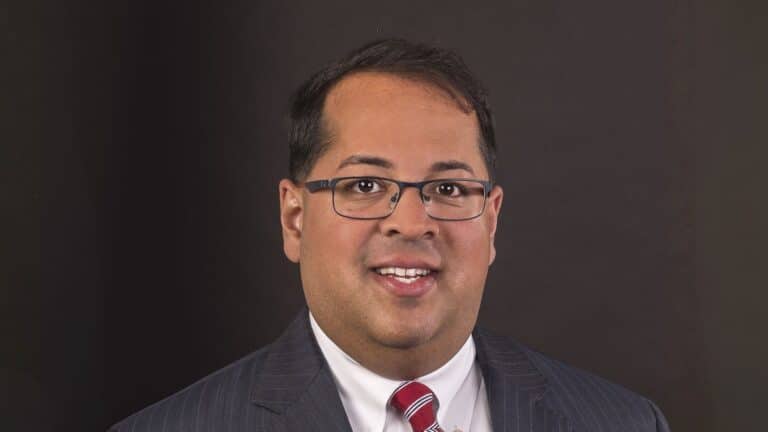This website uses cookies as well as similar tools and technologies to understand visitors’ experiences. By continuing to use this website, you consent to Columbia University’s usage of cookies and similar technologies, in accordance with the Columbia University Website Cookie Notice.
Neil Chatterjee, Chairman of the Federal Energy Regulatory Commission, joins Phil Sharp, a former U.S. representative for the state of Indiana and a member of the advisory board at the Center on Global Energy Policy, on this special edition of the Columbia Energy Exchange podcast, recorded live at the 2019 Columbia Global Energy Summit.
They discuss the technological and market changes that have impacted the regulatory landscape of U.S. energy, the efficiencies of a competitive market, threats to the resilience and security of power-grids, and FERC’s role in addressing the threat of climate change.
Chairman Chatterjee was confirmed to the FERC by the Senate in 2017, serving as Chairman from August to December 2017 and from October 2018 to present. Prior to joining, he was energy policy advisor to U.S. Senate Majority Leader Mitch McConnell (R-KY). Before this, he worked as a Principal in Government Relations for the National Rural Electric Cooperative Association and as an aide to House Republican Conference Chairwoman Deborah Pryce. He began his career in Washington, D.C. with the House Committee on Ways and Means.
On April 10, the 2019 Columbia Global Energy Summit in New York City hosted top politicians, business leaders, and academics for a variety of lively discussions on what to expect in changes to the oil and gas landscape, the latest research on powering the low-carbon transition, navigating U.S. political fields to advance climate solutions, how to assess risk and build grid resilience, and much more.
More Episodes
Amy Harder on Climate and Energy Reporting
The national conversation around climate change is shifting. There’s more focus on energy affordability and demand, as well as on the dual role artificial intelligence plays as both...

In a Charged Environment, FERC Faces Demands for Energy
The Federal Energy Regulatory Commission (FERC) regulates the United States’ energy transmission, pipeline networks, and wholesale rates for electricity. For much of its history, FERC was a little-known...

World Energy Outlook 2025: Navigating Divergent Futures
Around the globe, and here in the United States, energy markets face huge uncertainties. They include everything from rising geopolitical tensions to a wave of new liquefied natural...

Building Energy Policy on Evidence
Elected officials face huge challenges when it comes to energy policymaking. They have very little time to learn complicated, nuanced issues. They're bombarded by information — some of...

Relevant
Publications
Regulatory Progress for Project-Based Carbon Credit Markets: Pre-COP30 Roundtable Summary
On November 6, 2025, in the lead-up to the annual UN Conference of the Parties (COP30), the Center on Global Energy Policy (CGEP) at Columbia University SIPA convened a roundtable on project-based carbon credit markets (PCCMs) in São Paulo, Brazil—a country that both hosted this year’s COP and is well-positioned to shape the next phase of global carbon markets by leveraging its experience in nature-based solutions.

America’s Toothless Sanctions on Russian Oil
Last month, the Trump administration imposed fresh sanctions on Russia’s two largest oil companies, Rosneft and Lukoil, signaling a renewed desire to drive Moscow to the negotiating table in its war against Ukraine. But although these measures have the potential to harm the Russian economy, just how much damage they inflict will depend largely on one actor: Beijing. China bought almost half the oil Russia exported in 2024, evading Washington’s existing restrictions in the process. And new sanctions alone will do little to push China into significantly reducing its purchases.

What the Global Electric Vehicle Market Signals for US Automakers and Policymakers

Opinion: Time for CT to rethink its climate strategy
Connecticut needs an honest debate, and fresh thinking, to shape a climate strategy fit for today, not 2022.


